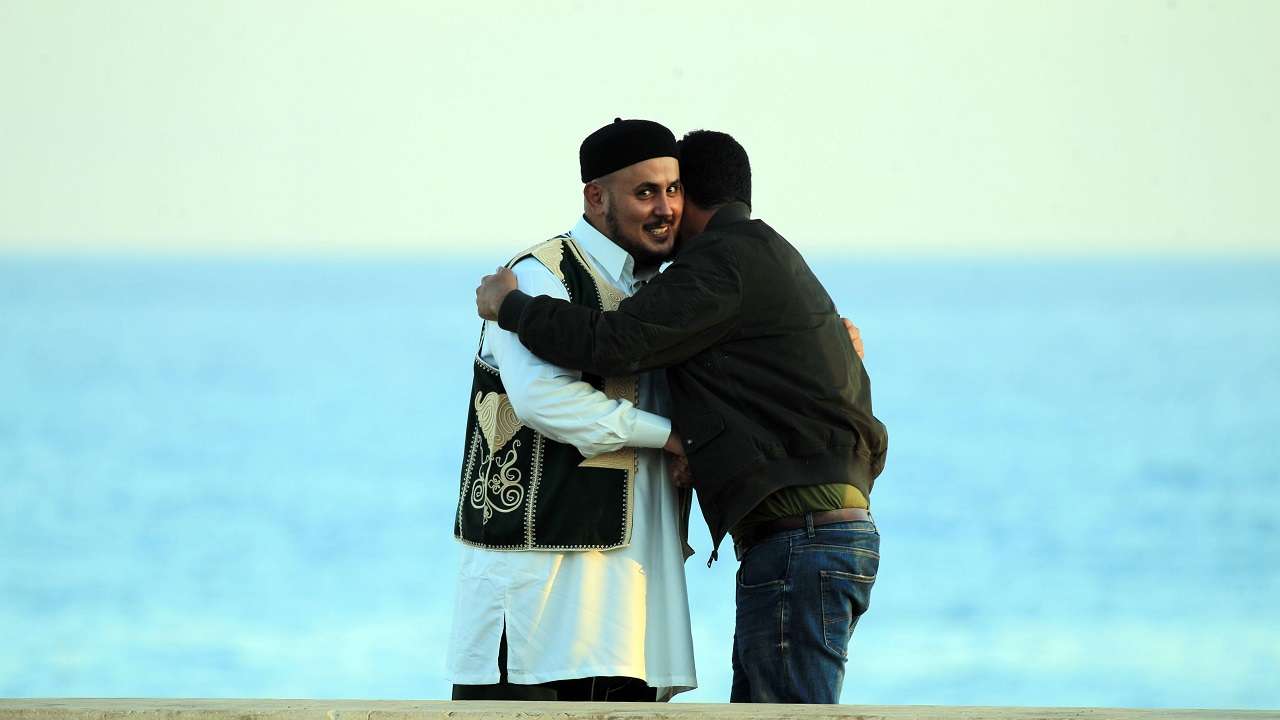Greeting each other with a hug not an Eid tradition, says Darul Uloom Deoband in new fatwa
It is wrong to greet each other with a hug on Eid, says new fatwa by Islamic seminary Darul Uloom in Deoband.

Photo: AFP Two men exchange Eid al-Fitr greetings on the eve of Eid , Zee News
In a fatwa issued by Islamic seminary Darul Uloom in Deoband, greeting each other with a hug on the occasion of Eid has been termed as a wrong practice. The fatwa, which has gone viral on social media on Eid eve, has termed the common practice of hugging each other to pass Eid greeting a wrong practice.
Ulema — Muslim scholars who are recognized as having specialist knowledge of Islamic sacred law — too has supported Darul-E-Uloom's Fatwa.
In this modern era, meeting each other with hugs has rapidly increased due to which Pakistan's Darul Uloom of Deoband's Ifta sector has responded to a written query of 'whether is it right to meet each other with a hug on Eid or not?'
Darul Uloom's Mufti-E-Karaam has explained two important points on this viral issue saying that hugging each other on Eid or practising hugs as a ritual on eid is wrong.
In the holy month of Ramadan, Mufti-E-Karaam has once again answered to the question of 'whether we can meet with a hug to someone on Eid or not?'
Also it was asked that whether anything about this is being revealed or demonstrated by Prophet Mohammed or any of his companions?
Another question was asked that 'if someone comes ahead to greet us with a hug then is it right for us to do the same?'
To which Darul Uloom's Khandpith said that, "meeting each other with hugs specifically on Eid or making it as a ritual for Eid isn't being demonstrated anywhere in the books and thus practising it will be concluded as a biddat (wrong)".
Mufti-E-Karaam also said, "if you meet someone after a long time then meeting that person with a hug habitually isn't protective but making it as a specific ritual for Eid is bad. Thus, if someone comes near you to greet you with a hug then you must lovingly deny them which will not become a reason for the fight."
On the other hand, supporting Deobandi's Ulema Maulana Kari Sahab Gora said that from the demonstrations of Prophet Mohammed's life says nothing about meeting each other with hugs on Eid. Thus, the entire Muslim community should protect themselves from it and the emergence of such a new ritual or false belief in deen (divine law/judgment) is considered as a Biddat. I support Deobandi's Darul Uloom's Fatwa on this."